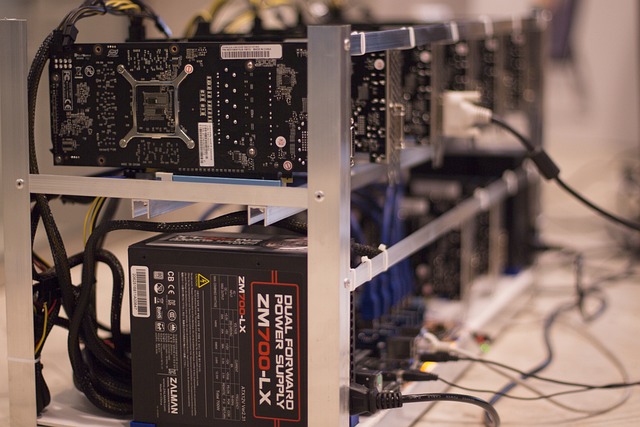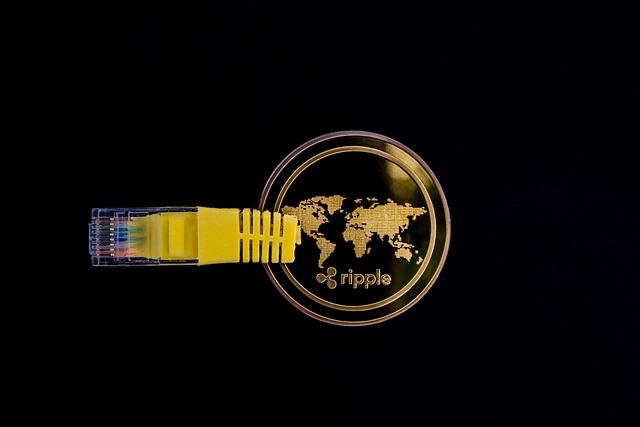DeFi Stocks vs. Traditional Investments: A Comparison
DeFi Stocks vs. Traditional Investments: A Comparison

The Rise of Decentralized Finance (DeFi)
In recent years, there has been a significant rise in the popularity of decentralized finance or DeFi. Traditional financial systems have long been centralized, with banks and other financial intermediaries acting as middlemen between individuals and their investments. However, with DeFi, the power shifts back to the individuals themselves.
One of the key features of DeFi is the use of blockchain technology. Blockchain allows for the creation of smart contracts, which are self-executing contracts with the terms of the agreement directly written into code. These contracts can automate various financial transactions, such as lending, borrowing, and trading, removing the need for intermediaries. This shift towards a decentralized and transparent financial system has garnered significant attention and investment, with many seeing it as the future of finance.
Understanding Traditional Investments
When it comes to investing, traditional investments have long been the go-to choice for many individuals. These investments typically include stocks, bonds, mutual funds, and real estate. One of the key reasons people are drawn to traditional investments is the familiarity and stability they offer. Stocks, for example, represent ownership in a company and can provide potential returns through dividends and capital appreciation. Bonds, on the other hand, are debt instruments where investors lend money to governments or corporations in exchange for regular interest payments. With a variety of options available, traditional investments provide a sense of security and a proven track record that many investors find comforting.
Another advantage of traditional investments is the extensive research and analysis available to guide investment decisions. Established companies and industries have a wealth of historical data and performance metrics that can assist investors in understanding potential risks and rewards. Financial advisors and analysts routinely evaluate these investments, allowing individuals to make informed choices based on expert insights. Additionally, traditional investments are typically subject to regulatory oversight, providing an additional layer of protection for investors. This structure is often preferred by those who value predictability and rely on a more established framework for their investment strategy.
Exploring the Potential of DeFi Stocks
The world of finance is constantly evolving, and one recent development that has captured widespread attention is the rise of decentralized finance (DeFi). With the advent of blockchain technology, DeFi has emerged as a disruptive force, offering a new way for individuals to access financial services and participate in investment opportunities. One area within the DeFi ecosystem that has garnered particular interest is DeFi stocks. These stocks represent ownership in various DeFi projects and platforms, providing investors with the potential to profit from the growth and success of this burgeoning sector.
Investing in DeFi stocks presents a unique opportunity for individuals who are looking to diversify their investment portfolios and tap into the potential of decentralized financial systems. Unlike traditional stocks, which are typically tied to centralized organizations, DeFi stocks represent investments in decentralized platforms and applications that aim to disrupt and revolutionize the traditional financial landscape. By investing in DeFi stocks, individuals can become part of the movement towards a more inclusive and accessible financial ecosystem, while potentially reaping significant returns. However, it is important to carefully consider the factors and risks associated with investing in DeFi stocks to make informed investment decisions.
Factors to Consider when Investing in DeFi Stocks
When considering investing in DeFi stocks, there are a number of factors that investors should keep in mind. Firstly, it is important to understand the underlying technology and principles of decentralized finance. DeFi operates on blockchain networks, utilizing smart contracts to remove intermediaries and facilitate financial transactions. Familiarizing yourself with the basics of blockchain and DeFi will provide a solid foundation for making informed investment decisions in this emerging industry.
Another factor to consider is the risk associated with investing in DeFi stocks. While this industry has shown tremendous growth and potential, it is still relatively new and volatile. The decentralized nature of DeFi also means that it is more susceptible to hacking and security breaches. Therefore, it is crucial to conduct thorough research, evaluate the security measures in place, and assess the track record of the DeFi project before investing. Additionally, it is advisable to diversify your investment portfolio to mitigate potential risks and take a long-term perspective when investing in DeFi stocks.
Risks Associated with DeFi Stocks
Investing in DeFi stocks can offer great potential for growth and profit, but it’s not without its risks. One of the main risks associated with DeFi stocks is the volatility of the market. Unlike traditional investments, DeFi stocks can experience sharp and sudden price movements, making it a high-risk investment option. This means that the value of your investment can fluctuate significantly in a short period, potentially leading to substantial losses if you’re not careful.
Another risk to consider is the lack of regulation in the DeFi space. Unlike traditional financial markets that are heavily regulated, the decentralized nature of DeFi means there are fewer safeguards in place to protect investors. This lack of regulation can leave investors vulnerable to fraud and scams, as the decentralized nature makes it easier for bad actors to operate without detection. It’s essential to conduct thorough research and due diligence before investing in DeFi stocks to minimize the chances of falling victim to fraudulent schemes.
• Volatility of the market: DeFi stocks can experience sharp and sudden price movements, making it a high-risk investment option.
• Fluctuating value: The value of your investment can fluctuate significantly in a short period, potentially leading to substantial losses if you’re not careful.
• Lack of regulation: Unlike traditional financial markets, the decentralized nature of DeFi means there are fewer safeguards in place to protect investors.
• Vulnerability to fraud and scams: The lack of regulation in DeFi makes it easier for bad actors to operate without detection, increasing the chances of falling victim to fraudulent schemes.
• Thorough research and due diligence: It’s essential to conduct thorough research before investing in DeFi stocks to minimize the risks associated with fraud and scams.
Benefits of Traditional Investments
When it comes to investing, traditional investments have long been a preferred choice for many individuals. There are several benefits associated with traditional investments that make them attractive options. Firstly, traditional investments such as stocks and bonds offer a sense of security and stability. These investments are typically backed by established companies or governments, which reduces the likelihood of losing one’s entire investment. Furthermore, traditional investments often provide steady income in the form of dividends or interest payments, providing additional financial stability for investors.
Another significant benefit of traditional investments is their ease of understanding. Unlike some alternative investment options, traditional investments are generally straightforward and easy to comprehend for the average investor. This makes them accessible to a wide range of people, regardless of their financial expertise or experience. Additionally, traditional investments are widely researched and analyzed, with extensive information available to help investors make informed decisions. This abundance of information allows individuals to assess the risks and potential returns associated with traditional investments, enabling them to align their investment strategies with their financial goals.
Comparing Liquidity and Accessibility
When it comes to investing, two important factors to consider are liquidity and accessibility. Liquidity refers to how easily an asset can be bought or sold without significantly impacting its price. In traditional investments, such as stocks and bonds, liquidity is typically high as these assets are widely traded on established exchanges. This means that investors can easily buy and sell these assets at any time during market hours, offering flexibility and the ability to quickly react to market changes.
On the other hand, decentralized finance (DeFi) stocks, which are digital assets built on blockchain technology, may have lower liquidity compared to traditional investments. DeFi stocks are often traded on decentralized exchanges, which are not as robust and regulated as traditional exchanges. As a result, it may take longer to execute trades and find counterparties willing to buy or sell at the desired prices. This can potentially affect an investor’s ability to swiftly enter or exit a position, especially during periods of high volatility. However, it is worth noting that DeFi is a rapidly evolving field, and advancements in technology and infrastructure could improve liquidity and accessibility in the future.
Analyzing Returns and Volatility
Returns and volatility are two important factors to consider when analyzing the performance of investments. Returns refer to the profits or losses generated by an investment over a certain period of time. Investors are always looking for positive returns, as this indicates that their investment is growing and generating income. However, it’s important to note that high returns often come with higher risks.

Regulatory Considerations for DeFi Stocks
Regulatory Considerations for DeFi Stocks
When it comes to investing in DeFi stocks, it is important to be aware of the regulatory landscape that surrounds these decentralized finance investments. While DeFi offers exciting opportunities for investors, it is still a relatively new and evolving market, which means there are certain risks and uncertainties to navigate.
One key regulatory consideration is the lack of regulatory oversight in the DeFi space. Unlike traditional investments that are governed by established regulations and overseen by regulatory bodies, DeFi operates in a decentralized manner, without any centralized authority. This means that there may be potential risks related to fraud, market manipulation, and other illegal activities, as there is no formal regulatory framework to protect investors. As a result, it is crucial for investors to conduct thorough due diligence and ensure they are investing in reputable DeFi projects that adhere to strong governance practices. Additionally, staying abreast of any emerging regulatory developments and complying with any applicable regulations is essential to mitigate potential risks and safeguard investments in the fast-paced world of DeFi stocks.
Making Informed Investment Decisions
When it comes to making informed investment decisions, there are a few key factors to keep in mind. Firstly, it’s crucial to do thorough research and understand the fundamentals of the investment opportunity. This includes analyzing the company’s financial health, its growth potential, and any potential risks or challenges it may face in the market.
Additionally, it’s essential to consider your own risk tolerance and investment goals. Every investor is different, and what may be suitable for one person may not be for another. Take the time to evaluate how much you are willing to invest and how much risk you are comfortable taking on.

What is decentralized finance (DeFi)?
DeFi refers to a new financial system that operates on blockchain technology, allowing for decentralized and permissionless access to financial services.
How does DeFi differ from traditional finance?
DeFi eliminates the need for intermediaries like banks and allows for direct peer-to-peer transactions. It also offers greater accessibility, transparency, and potentially higher returns compared to traditional finance.
What are traditional investments?
Traditional investments include stocks, bonds, mutual funds, and real estate.

What are DeFi stocks?
DeFi stocks are stocks that represent companies involved in decentralized finance. These companies develop and provide DeFi protocols, platforms, and services.
What factors should I consider when investing in DeFi stocks?
Important factors include the reputation and track record of the company, the demand for their products or services, the competition in the market, and the overall growth potential of the DeFi industry.
What are the risks associated with DeFi stocks?
Risks include market volatility, regulatory uncertainty, technological risks, cybersecurity threats, and potential scams or fraudulent projects.
What benefits do traditional investments offer?
Traditional investments are generally considered more stable and regulated. They offer long-term growth potential, income through dividends, and may provide diversification options.
How does liquidity and accessibility compare between DeFi and traditional investments?
DeFi investments offer greater liquidity and accessibility due to the 24/7 nature of decentralized platforms, while traditional investments may have limited trading hours and liquidity.
How can I analyze returns and volatility when investing in DeFi stocks?
You can analyze historical performance, evaluate the market demand for DeFi products, and consider the overall volatility and risk of the DeFi industry.
What regulatory considerations should I keep in mind when investing in DeFi stocks?
DeFi is still a relatively new and evolving industry, which means regulations can vary greatly. It’s important to stay informed about regulatory developments and comply with any applicable laws.
How can I make informed investment decisions?
To make informed decisions, research and educate yourself about the DeFi industry, understand the risks and potential rewards, diversify your portfolio, and consult with financial advisors if needed.
Todays Featured Product:
Buy, exchange and grow your crypto securely with a Ledger hardware wallet, combined with the Ledger Live app. It’s never been easier to keep your crypto safe and accessible. Buy direct from Ledger.com and get todays Special Offers Here.




